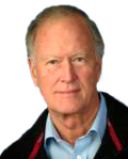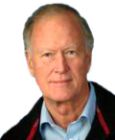Cognition
The Life and Death of Universal Grammar
Is universal language dead?
Posted January 19, 2011
The cognitive linguist Michael Tomasello recently proclaimed that "universal grammar is dead."
According to the most prominent linguist of recent times, Noam Chomsky, universal grammar is the inborn structure that underlies all languages, and explains why we are the only species able to generate a potentially infinite variety of utterances. Chomsky argues that universal grammar emerged as a singular event in the evolution of our species, probably at some time within the past 100,000 years.
The idea of a common structure underlying all languages is under increasing threat from the diversity now becoming apparent among the 6,000 or so languages of the world. Many of these languages are threatened with extinction. Over a thousand are spoken in New Guinea and its Melanesian surrounds, and perhaps as many in the indigenous communities of Australia. In Vanuatu, with a total population of 195,000 people, 105 different languages have been identified, with an average of less than 2,000 speakers per language. The sheer number of languages, and the speed with which they change over time, challenges the notion that they derive from a common source a mere 100,000 years ago.
Among their diversity, moreover, it is difficult to discern common principles. There are languages without prepositions, adjectives, articles, or adverbs, and no consensus exists among linguists as to whether all languages even distinguish between nouns and verbs. Different languages express the same concepts in very different ways: Nicholas Evans gives the examples of "paternal aunt" which is expressed by a verb in the Australian aboriginal language Ilgar, "know" which is an adjective in Australian Kayardild, and "love" which is simply a suffix in the South American language Tiriyo. Much of linguistic theory is based on the study of western languages, especially English, which has complex structure, including the embedding of phrases within phrases, but some indigenous languages permit no such embedding. Michael Tomasello argues that linguistic theory has been unduly influenced by the languages spoken (and written) by literate people, and perhaps even by rules laid down by early Greek and Latin scholars. But even among the languages of the developed world, there are marked variations. Chinese has no tenses, and Russian has no articles.
In defense of Chomsky, we should note that universal grammar does not apply to the external languages (or E-languages) that we actually use, but is a feature of what he calls internal language, or I-language. In this view, diversity arises not in I-language itself, but in the mapping of I-language onto E-languages. So could there still be common principles within I-language that could accommodate the huge diversity of E-languages? In Chomsky's most recent formulation, the so-called "minimalist program," universal grammar reduces to what he calls "unbounded Merge." That is, unspecified elements are merged in recursive fashion to create structures of any desired level of complexity.
Perhaps the question, then, is not so much whether universal grammar is dead, but whether it has sufficient vitality to be useful. Yes, all languages probably involve the merging of elements of various sorts-that's what makes language generative. But rather than dwell on this simple idea, we might be better to study languages in all of their diversity, and understand how they are shaped by culture, and by the pressures of the everyday commerce of cooperation and competition.
References
Chomsky, N. (2010). Some simple evo devo theses: How true might they be for language? In R.K. Larson, V. Déprez, and H. Yamakido, The evolution of human language (pp. 45-62). Cambridge: Cambridge University Press.
Evans, N. (2009). Dying words: Endangered languages and what they have to tell us. Oxford: Wiley-Blackwell.
Evans, N. & Levinson, S.C. (2009). The myth of language universals: Language diversity and its importance for cognitive science. Behavioral & Brain Sciences, 32, 429-492.
Tomasello, M. (2003). Introduction: Some surprises for psychologists. In Tomasello, M. (Ed.), New psychology of language: Cognitive and functional approaches to language structure (pp. 1-14). Mahwah, NJ: Lawrence Erlbaum.


